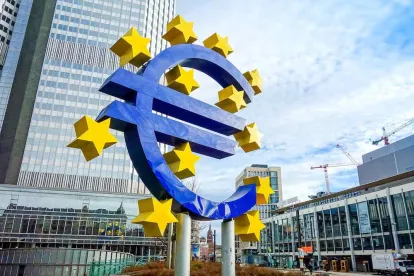In August 2020, we wrote a blog post about the adoption by the European Commission (“Commission”) of a White Paper on Foreign Subsidies. On 5 May 2021, the Commission adopted a proposal for a Regulation on foreign subsidies distorting the internal market after an extensive consultation process with stakeholders. This post updates our previous entry and considers the implications of the newly proposed regulation
It is almost certain that if the proposed Regulation is adopted by the Council and the European Parliament, companies benefitting from foreign subsidies or State support will soon face more scrutiny in the EU. This may affect U.S., UK, Canadian, Chinese, Indian, Japanese or Korean companies, for instance. This comes after the Commission has observed that in recent years foreign subsidies can be seen to distort the EU’s internal market by providing their beneficiaries with an unfair advantage because they facilitate acquisitions of EU companies, distort investment decisions and trade policies and even negatively affect public procurement.
The Commission believed there was a clear need to fill the regulatory gap which existed because existing trade defence rules did little if anything to level the playing field for all those that operate in the EU market. State subsidies (or “State aid”) are already controlled by the Commission when they are granted by EU Member States through the EU State aid rules, but the Commission’s role is limited to that: a control of Member State measures. Therefore, subsidies granted by non-EU countries currently fall outside the scope of EU State aid control, despite the potentially negative impact they can have on competition within the internal market.
In a nutshell, the proposal provides for the following new regulatory features:
-
prior, suspensive, mandatory notification to the Commission by non-EU companies of any non-EU subsidy ≥ €50m to support any acquisition of an EU company having an EU turnover ≥ €500m;
-
prior, suspensive, mandatory notification to the Commission by non-EU companies of any non-EU subsidy to support any public procurement bid of a value ≥ €250m;
-
ex officio investigation powers exclusive to the Commission in all other cases below the above thresholds and in all other market situations;
-
in case of distortive foreign subsidies, powers exclusive to the Commission with a view to imposing effective remedies or to prohibiting the relevant business actions.
Investigation powers under the proposed Regulation
The proposed Regulation provides for the Commission to have the power to investigate financial contributions granted by non-EU governments to any companies active in the EU (whether those companies are EU companies or not). Foreign subsidies consist of a financial contribution by a third country which confers a benefit to an undertaking (“enterprise” in EU jargon) engaging in an economic activity in the internal market and for which the benefit is limited to an individual undertaking or industry or to several undertakings or industries. This is not unfamiliar to State aid practitioners as it mirrors the definition of aid under Article 107(1) TFEU.
A financial contribution is defined broadly and includes the “(i) transfer of funds or liabilities, such as capital injections, grants, loans, loan guarantees, fiscal incentives, setting off of operating losses, compensation for financial burdens imposed by public authorities, debt forgiveness, debt to equity swaps or rescheduling; (ii) the foregoing of revenue that is otherwise due; or (iii) the provision of goods or services or the purchase of goods and services”.
In order for the Commission to investigate foreign subsidies, the proposal provides for three-tiered investigative tools with the following components:
-
A notification-based tool to investigate concentrations involving a financial contribution by a non-EU state, where the EU turnover of the company to be acquired (or of at least one of the merging parties) is equal to or higher than €500 million and the foreign financial contribution is at least €50 million;
-
A notification-based tool to investigate bids in public tenders with a contract value of more than €250 million involving a financial contribution by a non-EU government; and
-
A general tool to investigate all other market situations, and for concentrations and public procurement procedures below the thresholds for components 1 and 2, which the Commission can start on its own initiative and for which it may request ad-hoc notifications.
For the notification-based tools for concentrations and public procurement procedures, the acquirer or bidder will have to notify the Commission of any financial contribution received from a third country in relation to concentration or tender prior to the concentration being implemented or when submitting a tender or a request to participate in a public procurement procedure. Pending completion of the Commission’s review, the concentration in question cannot be completed and the investigated bidder cannot be awarded the contract.
For the general market investigation tool, the Commission can start investigations ex officio or request ad-hoc notifications based on information it considers necessary to assess whether the financial contribution under examination constitutes a foreign subsidy, either by making requests for information or conducting inspections in and outside the EU.
Distortive foreign subsidies
Once the Commission establishes the existence of a foreign subsidy, it has to establish whether that foreign subsidy distorts the internal market. Whether or not a foreign subsidy distorts the internal market can depend on the amount of the subsidy, the nature of the subsidy, the situation of the undertaking in the internal market, and the purpose and conditions attached to the foreign subsidy and its use. The proposed regulation considers that a subsidy is unlikely to distort the internal market if its total amount is below €5 million over any consecutive period of three fiscal years.
The proposal includes a list of foreign subsidies that are “most likely” to distort the internal market (Article 4) which includes “(1) a foreign subsidy granted to an ailing undertaking, that is to say which will likely go out of business in the short or medium term in the absence of any subsidy, unless there is a restructuring plan that is capable of leading to the long-term viability of that undertaking and includes a significant own contribution by the undertaking; (2) a foreign subsidy in the form of an unlimited guarantee for debts or liabilities of the undertaking, that is to say without any limitation as to the amount or the duration of such guarantee; (3) a foreign subsidy directly facilitating a concentration; (4) a foreign subsidy enabling an undertaking to submit an unduly advantageous tender, on the basis of which the undertaking would be awarded the public contract.”
In many cases, it may be difficult to obtain evidence of the subsidy because many of the key facts will lie outside EU jurisdiction. Therefore, the Commission is proposing that it may elect to proceed on the basis of “facts available”. This means that the Commission would be empowered to act on such a basis if the investigated company in receipt of alleged non-EU subsidies does not cooperate with the Commission’s investigation. This is a usual tool in trade defence legislation.
Finally, the Commission proposes to balance the negative effects of a foreign subsidy in terms of distortion on the internal market with any positive effects on the development of the relevant economic activity. And, the Commission will balance the negative and positive effects when deciding whether to impose redressive measures or to accept commitments, and in deciding the nature and level of those redressive measures or commitments. This particular provision in the proposed Regulation is somewhat lackluster and leaves open many questions. It would provide greater certainty if the Commission would issue guidelines on its assessment of positive and negative effects as already done in the field of State aid.
Enforcement against foreign subsidies
Redressive measure and commitments
The proposed Regulation provides for both commitments and redressive measures to remedy the distortion on the internal market actually or potentially caused by a foreign subsidy. These may consist of: offering access under fair and non-discriminatory conditions to an infrastructure that was acquired or supported by the distortive foreign subsidies unless such fair and non-discriminatory access is already provided for by legislation in force in the European Union; reducing capacity or market presence; refraining from certain investments; licensing on fair, reasonable and non-discriminatory terms of assets acquired or developed with the help of foreign subsidies; publication of results of research and development; divestment of certain assets; requiring the undertakings concerned to dissolve the concentration; and/or repayment of the foreign subsidy, including an appropriate interest rate. This is not an exhaustive list and, because both actual and potential distortions can be remedied, there is great scope for this list to expand and for the Commission to become creative in its remedies.
Fines
The Commission may impose fines and periodic penalty payments when an undertaking intentionally or negligently supplies incorrect, incomplete or misleading information in response to a request or does not supply the information within the prescribed time limit; produces incomplete books or other records related to the business; fails to rectify within a time-limit set by the Commission any incorrect, incomplete or misleading information, fails or refuses to provide a complete answer on facts relating to the subject-matter and purpose of an inspection; or refuses to submit to inspections or breaks seals that have been affixed.
The fines are not to exceed 1% of the aggregate turnover of the undertaking concerned, so the deterrent effect of the proposal for companies backed by foreign subsidies is questionable.
Impact of the Proposal
The proposed Regulation is far-reaching and, if adopted, will increase the burdens for companies operating and investing in the EU. This has always been an ambitious project and it has only become more important in the aftermath of the Covid-19 outbreak, which will see companies worldwide receiving extensive subsidies in order to counter the devastating effects of the pandemic.
Whilst the proposal is greatly influenced by EU competition rules, the Commission has managed to include some powerful trade tools, in particular the balancing of pros and cons of intervening even when the existence of foreign subsidies is established as well as the option to proceed on the basis of “fact available”. This of course would play into the hands of countries that rely on foreign investment.
The Commission has said that this initiative is not intended to scare off foreign investment because the focus is on leveling the playing field. However, there is no denying that companies receiving foreign subsidies from third countries will have more hoops to jump through and more red tape. These companies now need to consider carefully how this regime will impact their activities on the internal market and begin to consider compliance mechanisms to assess whether any planned concentrations or bids would require notification under the foreign subsidies regulation and as well as preparing themselves for potential inspections or investigations.
Next Steps
The Commission’s proposal will now be the subject of considerable debate during the legislative proposal in the European Parliament and the Council which could take up to two years.
There is also an open public consultation to comment on the text of proposal which will close by mid-June 2021.
It will be most interesting to see the outcome of the public consultation and the legislative process over the coming months and years.





 />i
/>i

